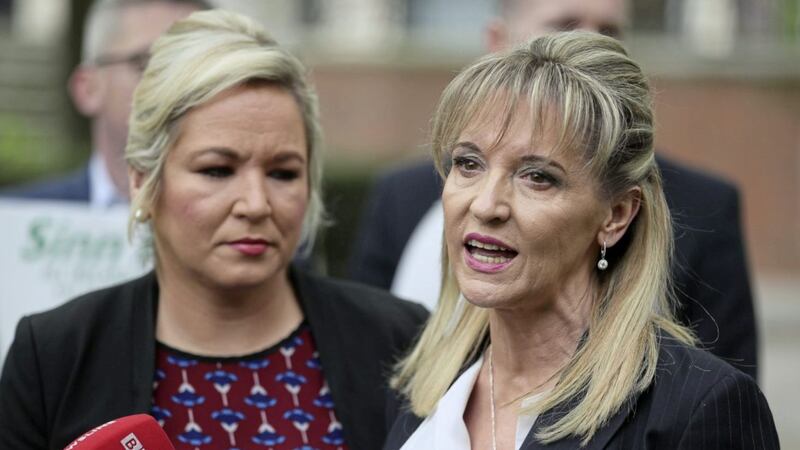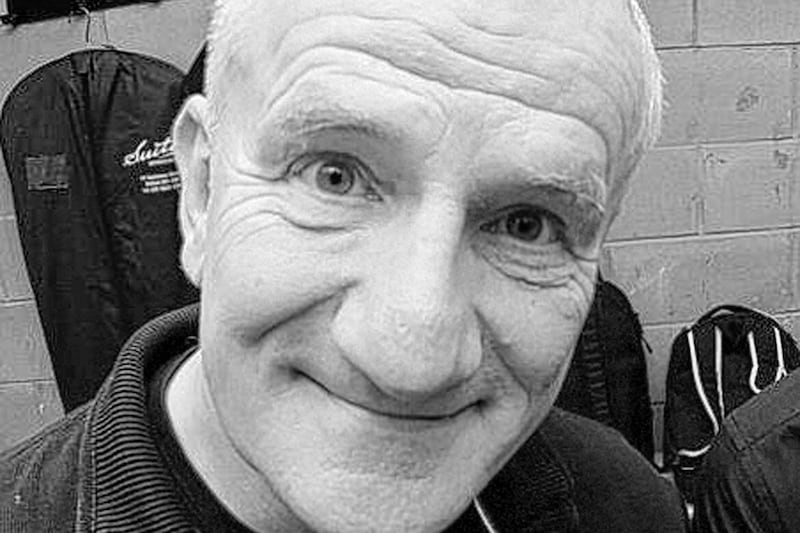JUST once, I’d love to see a politician who has made a serious mistake take responsibility for their actions, do the honourable thing and resign. I know – some chance.
For example, who knows what Martina Anderson was thinking when she described people receiving a Troubles pension as being mostly "those involved in collusion" and having taken part in "Britain’s dirty war in Ireland"?
Having hit send on her Twitter feed, did she seriously believe anyone would support her crass comments about thousands of innocent civilians crippled in the conflict? You’d also presume the Irish EU trade commissioner Phil Hogan should have realised the madness of attending a golf dinner which broke Covid restrictions.
While both Anderson and Hogan are seasoned political operators, their actions illustrate a complete lack of judgment. The difference between the two cases is while Hogan resigned, Anderson remains after an apology admitting her comment had been "clumsy".
However, lack of political accountability is not exclusive to Sinn Féin. Nearly every political party in Northern Ireland has experienced a PR disaster where they’ve opted to circle the wagons rather than accept responsibility for flawed decisions.
Nor is this abdication of responsibility an exclusively Northern Ireland phenomenon. The handling of the coronavirus pandemic by Matt Hancock, Britain's secretary of state for health, has been appalling, as has his Cabinet colleague Gavin Williamson’s disastrous decisions with regard to exam results. Yet both remain in position, while, in the case of Williamson, his top civil servant was offered up as a sacrificial lamb.
Irrespective of party, nation or position, the script used by politicians in attempting to shift responsibility usually follows a predictable pattern.
Initially, they deny everything. If this doesn’t work, they reluctantly accept a mistake may have been made and offer a begrudging apology. If this apology is rejected or seen as insufficient, they move to offering a ‘profound apology’, all the while praying a bigger story appears on the news cycle to distract from their case. A local example of this was the publication of the RHI report on March 13, eight days after the first UK coronavirus death on March 5.
If the politician doesn’t luck out with a worldwide pandemic, they’ll face calls for their resignation. This they will rebuff with the following platitude: ‘Lessons have been learned from this unfortunate incident and I believe it is my responsibility to remain in position to oversee the necessary change.'
If the media don’t move on, or if there is a sexual angle to the story, a photo opportunity is hastily arranged in front of the family home with the forlorn politician surrounded by their doughty partner and pristine children. With the whole family smiling for no discernible reason, the politician rebuffs any suggestion of resignation, assuring the world they have the full support of their party leader.
This is invariably followed by their resignation letter, in which they continue to argue that although they have done nothing wrong, they are stepping down for the good of their party and country. In the House of Commons, they then disappear to the backbenches where they languish before accepting a peerage from the same prime minister who forced them from office.
The one place where this script isn’t followed is here in Northern Ireland. Irrespective of the nature of the scandal, be it a flawed heating scheme, past membership of a proscribed organisation or nepotistic payments of public money to family members, the response is predictable. Firstly, the politician reminds their support base of worse behaviour by their opponents while standing in front of their particular flag. Next, they dismiss the accusations of misconduct as the devious creation of ‘the other side’ in an attempt to usurp power, warning of cataclysmic events on a biblical scale if they’re successful.
Just how dismissive our political class are of public opinion can be seen in a recent decision to increase their constituency office payments, resulting in a bill of up to £4.2 million to the public purse. The 60 per cent increase in salaries for some MLA office staff was only possible after the assembly refused to reappoint the Independent Financial Review Panel, which had previously set their wages, taking that role on themselves.
We should not forget that while MLAs enjoyed their three-year paid break, our nurses were forced to strike to secure pay parity with colleagues across the UK. These same nurses now face into the next wave of this pandemic knowing our politicians believe their office staff more deserving of wage increases. For that, I apologise.









